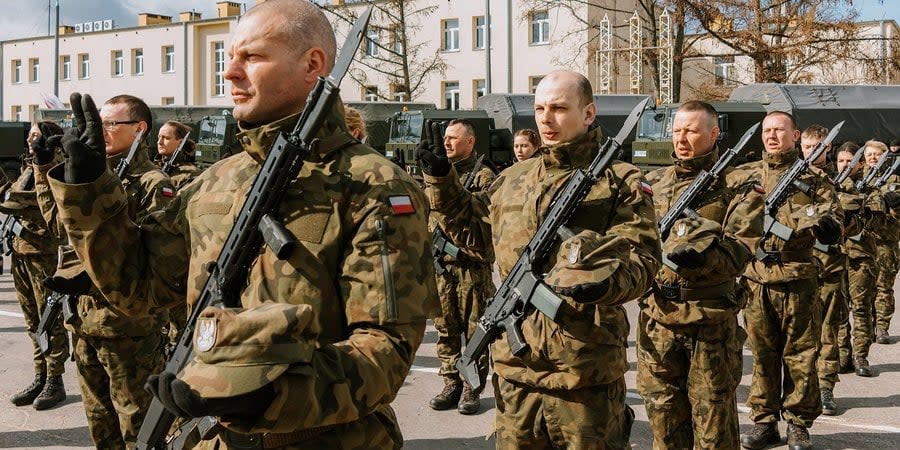Poland to bolster military, border security over Wagner threat, says deputy PM

Poland will create new military units to double the size of its armed forces, in light of new threats to the country’s sovereignty, such as the Wagner mercenary group, Deputy Prime Minister of Poland, Jarosław Kaczyński, said on July 28.
"Our army, which previously consisted of only three divisions… Now there will be six divisions and, over time, there will probably be a reserve division," Kaczyński said while visiting the Polish-Belarusian border.
Read also: Russia may use Wagner mercenaries to attack NATO through Poland, Baltics – Presidential advisor
The Polish government is also strengthening its border security by constructing a fence with "various types of electronic devices" to facilitate its protection.
Kaczyński characterized the events on the Polish/Belarusian border as an attack conducted “in a less aggravated form”, but one that can at any moment “intensify and take on a different character associated with the presence of the Wagnerites.”
Read also: Ukrainian border service tracking Wagner mercenary redeployment to Belarus
"We want to make it clear that we are doing everything necessary and sufficient to repel any provocations or any aggressive actions more dangerous than the previous ones," Kaczynski emphasized.
Earlier, Polish Minister of Defense, Mariusz Blaszczak, reported that his country had transferred a number of troops to the eastern border as a response to the arrival of Wagner mercenaries in Belarus.
On July 23, Blaszczak announced that his country would create a new military unit near the border with Belarus.
Wagner in Belarus: What we know
Wagner mercenary leader, Yevgeny Prigozhin, announced the beginning of an armed conflict with the Russian Defense Ministry on the evening of June 23, claiming that he wanted to “restore justice” in Russia.
Read also: Wagner mercenaries continue to receive salaries – report
The one-day insurrection was halted after negotiations between Belarusian dictator Alexander Lukashenko and Prigozhin.
Following the negotiations, Russian dictator Vladimir Putin presented the Wagner troops with three options, one of which involved their deployment to Belarus.
Shortly after, reports emerged that camps were being constructed in Belarus which were intended to accommodate the Wagner fighters. Satellite images of a potential field camp were subsequently released. While Lukashenko denied the existence of any camps specifically for the Wagner mercenaries, he mentioned that they would be “provided with accommodation” if necessary.
Ukrainian intelligence has cautioned against premature conclusions regarding the transfer of Wagner mercenaries to Belarus.
Later, information surfaced suggesting that Wagner would be involved in training Belarusian nationals for combat. This statement was supported by NATO Secretary General Jens Stoltenberg, and on July 12, the Ministry of Internal Affairs of Belarus confirmed negotiations regarding the training of Belarusian special forces.
Read also:
Wagner mutiny launched ‘transit of power’ in Russia – defense minister Reznikov
‘Paralyzed’ Putin did nothing despite knowing of Wagner rebellion in advance – Washington Post
The State Border Guard Service of Ukraine announced on July 14 that Russia had withdrawn nearly all of its official military personnel from Belarus.
We’re bringing the voice of Ukraine to the world. Support us with a one-time donation, or become a Patron!
Read the original article on The New Voice of Ukraine

